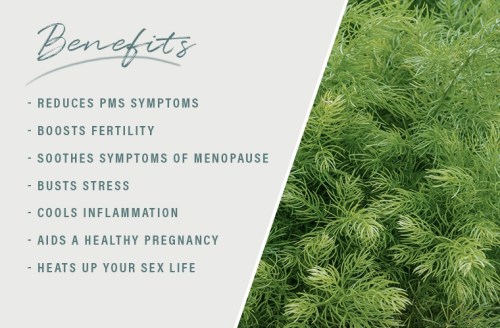Why every woman should take a shatavari supplement
Experts weigh in on the Ayurvedic adaptogen, which has been linked to health benefits including increased fertility, lower stress levels, and less inflammation.

Finding the right supplement to take at every age and stage of your life is a little like dating. You’re recommended a few, you see how they make you feel, and maybe you move on to other options before committing. But if a supplement called shatavari has been on your radar, it’s time to understand why this versatile supplement is a relationship worth having for the rest of your life.
Shatavari supports female health from menarche to menopause, conception to postpartum, and any hormonal imbalance or issue in between. “It’s been used for centuries to help women with their reproductive health, restore and balance hormones, increase libido, fight fatigue, treat PMS and menopausal symptoms, support healthy production of breast milk, strengthen the immune systems, and improve digestive health,” says Cecilia Lacayo, MD, a physician at the biostation, a facility which offers sexual and reproductive health services in Delray Beach and Miami, Florida.
Shatavari supports female health from menarche to menopause.
Also known as wild asparagus, shatavari is an Ayurvedic herb that’s found in the tropical areas of Asia, India, Australia, and Africa. It’s of a unique family of herbs known as adaptogens, meaning it gives your body what it specifically needs in order to bring it back to homeostasis (or balance). This can range from fighting off the negative effects of stress to increasing your milk supply after giving birth.
Shatavari is bittersweet in taste, and it can be taken in powder, liquid, or capsule form, says Amanda Frick, lead naturopathic doctor at Harvey Health in Los Angeles. “Though in traditional uses,” she adds, “you want to avoid the encapsulation so that the flavor can be appreciated, and the digestive effect can start with the taste of the herb.”
Before you add it to your daily routine, note that some experts recommend you only use shatavari periodically to treat specific ailments. And what can you expect when you take it? The word shatavari itself offers a clue. “A rough translation of the name shatavari is ‘she who has 100 husbands’,” explains Frick. “If that sounds sassy, it’s due to its traditional use as a versatile female reproductive tonic, its aphrodisiac effect, and its uses for transitioning through hormone changes in life such as menopause.”
If you’re considering adding a shatavari supplement to your diet, here’s what it can do for you.

How shatavari boosts women’s health
Shatavari can provide relief from menstrual cramps, irritability, and bloating. How does it control those monthly woes? According to Frick, in Ayurveda, shatavari is used medicinally as a diuretic and “it acts as antispasmodic [muscle relaxer] on uterine tissue.” This relieves stomach pain and cramping, and can also help in the prevention of miscarriages, Frick says.
When you’re trying to conceive, shatavari balances the pH of your vagina and controls estrogen production to regulate periods and support production of the luteinizing hormone (LH) that’s necessary for triggering ovulation. And, once a healthy baby is delivered, shatavari acts as a galactogogue. “That can increase production of breast milk in nursing mothers,” Frick says.
But postpartum isn’t where the usefulness of shatavari ends. During menopause, its effective in treating decreased estrogen levels. “The most interesting, active constituent in Western herbalism is the phytoestrogen component of shatavari,” Frick says. “During perimenopause and menopause, it’s useful to treat hot flashes, night sweating, vaginal dryness, and brain fog.”
But its benefits extend to everyone
A natural stress buster, shatavari can calm nerves while protecting your body from the havoc stress can wreak. It’s like a natural form of Tylenol, Pepto, and Tums all in one. It fights against heartburn and colitis and has a “cooling” effect that can lower fevers and inflammation.
“In traditional Chinese medicine, shatavari is very closely related to tian men dong, [an asparagus root] which is a very potent yin tonic,” Frick says. “Tian men dong is used for lung and kidney yin deficiency. While that’s commonly manifested in menopause as hot flashes and night sweats, it’s also used for treating dry mouth and dry cough.”
Finally, shatavari is not just for women. Men can take it, too—it helps with impotence. But regardless of who your partner may be, if you both take it, it’s been known to act as a natural aphrodisiac that brings lovers closer together. Now that’s a win-win.
Let Ayurveda help you stay healthy and happy. These tips can lessen your monthly cramps, and try this recipe for an ultra-healing latte.
Sign Up for Our Daily Newsletter
Get all the latest in wellness, trends, food, fitness, beauty, and more delivered right to your inbox.
Got it, you've been added to our email list.










